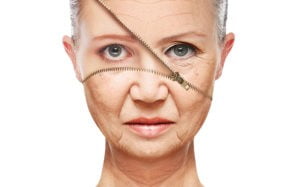Why do people age differently?
Have you been asked this question? I am sure , you already noticed, some people look smart and energetic into old age, while other people, much younger are sick, exhausted and foggy?
I am fascinated of this. I encountered in the hospital, so many young people marked by the disease of aging: cardiovascular disease, arthritis, a weakened immune system, diabetes, cancer, lung disease and so on. Skin and hair become older.
People are ageing differently. The quality of our health is shaped by the way we live, even though we are born with put features already encoded into our chromosomes.
We all will get older, however how we age is very much dependent on our cellular health.
According to Blackburn and Epel ( 2017), telomeres which shorten which each cell division, help determine how fast your cell age and when die, depending on how quickly they wear down. The telomeres, it turns out, are listening to you. The way you live can, basically, tell your telomeres to speed up the process of cellular aging. On the other hand can also do the opposite. The foods you eat, your response to emotional challenges, the amount of exercise you get, whether you were exposed to childhood stress, and even the level of trust and safety in your neighbourhood- all of these factors and more appear to influence your telemoeres, and can prevent the premature aging at the cellular level.
Telomeres- a pathway to living younger. We can control the telomeres, or in other words, we can change the way that we age, at the most elemental, cellular level.
Our body is full of cells that need to constantly renew themselves to stay healthy. These renewing cells, line in:
- immune system
- gut
- bones
- lungs
- liver
- skin
- hair follicles
- pancreas
- cardiovascular system linining
- heart’s smooth muscle cells
- brain in parts including the hippocampus ( a learning and memory center of the brain)
When cells can no longer renew themselves , the body tissues they supply will start to age and function poorly. Having a good suply of stem cells that are able to renew themselves is key to staying healthy and to recovering from sickness and injury.
We can take the control of our genes. For example: ageing genes usually associated with fat and wrinkles can be altered with diet, exercise and other lifestyle choices.
In a simple words, turning your good genes on and your bad genes off you can literally prevent ageing-no matter how old are you. Short telomeres put you at a greater risk not just for wrinkles but also for heart disease, cancer or early death. The good news, you can improve the upkeep of your telemores. .
Do you think the lifting, sucking and filling are your only option to reverse the signs of ageing?
You have the power to redesign the way your DNA talks to your body, a process known as gene expression.
I can assure you there is a far safer and more palatable solution.
Every day is a new chance to be younger!
Are you ready to become younger and healthy? The younger protocol is special created for you
Telomeres delay ageing of the cell . An important piece in the puzzle – human ageing, cancer, and stem cells

https://www.nobelprize.org/nobel_prizes/medicine/laureates/2009/press.html
Blackburn, E. and Epel, E. (2017). The telomere effect. Living younger, healthier, London: Orion Spring
